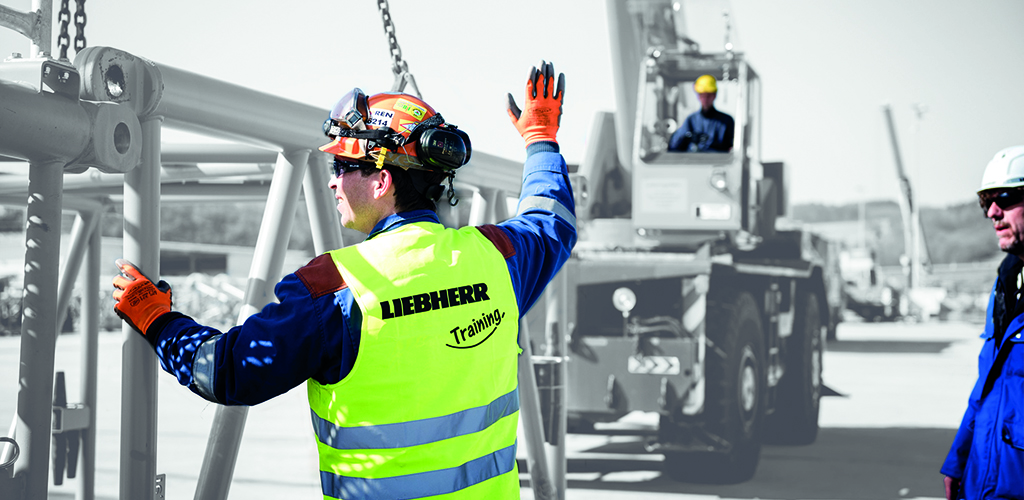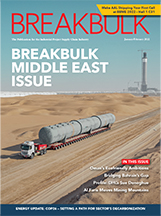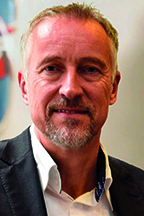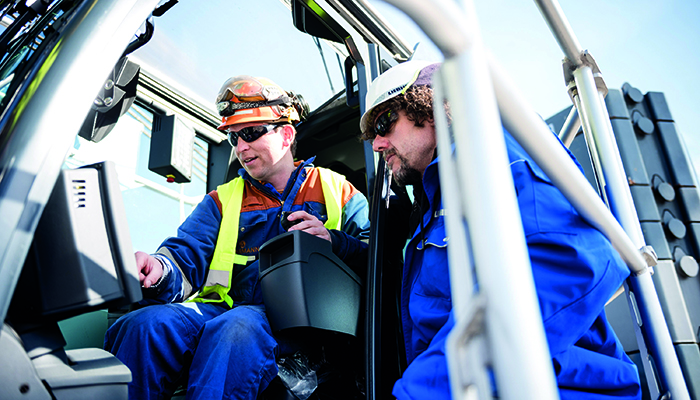Employers Face Seller’s Market for Hiring Employees

By Felicity Landon
 Covid-19 brought uncertainty everywhere. The response from most professionals in the breakbulk and project cargo sector was to hold on to the job they had. But now, as the market wakes up again, it is anything but business as usual.
Covid-19 brought uncertainty everywhere. The response from most professionals in the breakbulk and project cargo sector was to hold on to the job they had. But now, as the market wakes up again, it is anything but business as usual.
We know what employers want: skilled, enthusiastic, experienced people. But this is a seller’s market: these days it’s all about what current and potential employees want. The project cargo and breakbulk sectors have always needed flexible people. But now it’s the employees who are asking for flexibility – to work from home, work part time, work flexible hours.
As one employer noted, people used to be knocking on the door looking for a job, prepared to work whatever hours were required. Today, they are more likely to ask whether the company’s vision aligns with theirs. And they are tempted away from the sector by alternatives, whether in tech or, in the UK’s case, to work as Customs specialists that are in high demand post-Brexit.
During 2020 and into 2021, anyone in project cargo who had a job that was secure didn’t want to risk leaving if they didn’t have to, said David Cohen, of Alchemy Global Talent Solutions. “For example, if they were at manager level and were offered a job at senior manager level, they were still not that keen on taking the jump,” he said.
However, Cohen, who recruits for breakbulk/project cargo roles and Customs and trade compliance roles, said: “It has been really mad for us recently.” Candidates have their choice of the market, he said.
 “More and more people are getting out of breakbulk and project cargo and going to work with companies in the technology business, because they know that is going to be more secure going forward. Others are going into Customs entries – a Customs coordinator was being paid £24,000-£25,000 two years ago but now it’s a tough ask to find someone on less than £35,000.”
“More and more people are getting out of breakbulk and project cargo and going to work with companies in the technology business, because they know that is going to be more secure going forward. Others are going into Customs entries – a Customs coordinator was being paid £24,000-£25,000 two years ago but now it’s a tough ask to find someone on less than £35,000.”
He was recently searching for a candidate with experience in handling abnormal loads and the only one he could find wanted to work from home three days a week. And there are more jobs available than there are candidates, he added.
‘Space to Think’
This is also about people having had space to think. “People had to stay at home during lockdown – they started to think about the meaning of their work and the meaning of their life, and how to match those with each other,” said Pieter Van den Eynde, group talent manager at Sarens, the heavy-lift, engineered transport and crane rental specialist based in Belgium. “They had much more time for existential questions. There is a change – people are more aware when applying for specific jobs or employers. They are asking themselves, is this what I want to do with my life? Now, the meaning of work is much more important to a person’s identity.”
Companies looking to attract the best talent need to be more aware of their values, Van den Eynde said. “They need to consider – who are we, what do we stand for, what is our mission, because employees are taking these things into account to define their professional life.”
Flexibility is tricky in this sector, of course. “We are quite a demanding company in needing flexibility from our employees – but we are also quite aware that we need to be flexible as well. It’s give-and-take,” he said.
“But you do have to have a flexible mindset in this business. Today you are working in Belgium, tomorrow you may be sent to France, the week after you may be in a project with other people and other equipment, so you need to adapt. In a day, things can change, the weather can change. For tomorrow, you only know the starting hour.”
It’s up to companies to communicate clearly, in the application process, what is important, to attract people with matching values, he said. But he also noted that some people, after their time to think, decided they would prefer the variety of a job in project cargo rather than sitting at a desk all day.
While there was less movement during the early uncertainty of Covid-19, now “the war for talent is 120 percent back,” he said, based on more awareness of “who am I, what do I want?”
High Demand
Gerard Bastiaansen, managing director of Wagenborg Nedlift, said that when Covid-19 arrived, the company’s response was clear. “We said: we have to do our best to keep our talented, dedicated, loyal people and we are not going to fire or lay off people because of lack of work. A lot of projects were immediately postponed and we had to pay people sitting at home.”
 This approach reflected Wagenborg position as a family-owned company focused on the long-term, Bastiaansen said. “The first thing the CEO said was, ‘Don’t do anything stupid like laying people off. You have to be patient.’ For a couple of months we stopped recruiting, but then that picked up again because, as we all know, there are no experienced crane operators available.”
This approach reflected Wagenborg position as a family-owned company focused on the long-term, Bastiaansen said. “The first thing the CEO said was, ‘Don’t do anything stupid like laying people off. You have to be patient.’ For a couple of months we stopped recruiting, but then that picked up again because, as we all know, there are no experienced crane operators available.”
In a market where talent is in high demand, Wagenborg tries to ensure that its professionals can get promotion internally, so that they are do not go elsewhere, Bastiaansen said. “I would say, make sure you know who the talented people are in your company, what is the next step in their life. Perhaps they are working five days a week and are becoming a parent and they want four days a week but don’t want promotion, while others want to step up. Not everyone wants to move up – sometimes it is to the left or right.”
After a Covid pause, Wagenborg has also restarted its Personal Development Program (PDP), which brings together groups of employees from across finance, operations, engineering, HR and other areas to develop their skills and get to know each other.
Companies must be proactive in seeking out, training and retaining talent, Bastiaansen said. “Crane operators are hard to get. You have to find them yourself, by visiting schools, getting the youngsters interested, making sure they know your company well, offering apprenticeships. Get them onboard and train them. Go to events, talk to people, make YouTube movies, make sure everyone can find you on LinkedIn.”
 Wagenborg is already providing flexibility, he said. “We have crane drivers who only work four days a week. That is a challenge for our planning/operations departments, but we have to do this. What we do is discuss with our employees whether their personal needs fit in with the strategic direction of the company.
Wagenborg is already providing flexibility, he said. “We have crane drivers who only work four days a week. That is a challenge for our planning/operations departments, but we have to do this. What we do is discuss with our employees whether their personal needs fit in with the strategic direction of the company.
“Sometimes it is a crane operator who has just become a dad and wants to be at home more, either working four days or changing to an office job like project manager or in the planning department; then you have to train them again. If you can succeed, these people will be very loyal.”
Indeed, the company’s commercial director started as a crane operator 35 years ago, he pointed out. “Of course you also need talent from university, but in our engineering department, for example, we have one guy who has been through technical university sitting opposite an ex-crane driver. They need each other to find the best technical solutions.”
Bastiaansen is also relaxed about people working from home when possible. If someone wants to work at home first thing so they can take the children to school, that’s fine. “I will judge you by your results, not the hours you spend in the office. Every manager can have his team working at home – but not the whole week, and not the whole team at the same time, although for the operations department it is more difficult, of course.”
Lack of Skilled People
Ton Klijn, director at ESTA, the European association for abnormal road transport and mobile cranes, highlighted the shortage of drivers all over Europe. “That is partly due to Covid and the way in which these people have been treated – tested five times a week, kept waiting at borders, not allowed to use sanitary facilities. I know quite a few who said, ‘I have had it’ and gone elsewhere. Some moved to cranes. But there is also a shortage of crane drivers. People don’t want to get out of bed at 0500 hours to go to a site.”
 He added that there is also a shortage of qualified personnel in the operational and planning area, particularly in the heavy transport sector. And if they can be found and trained, they may well be snapped up by the competition.
He added that there is also a shortage of qualified personnel in the operational and planning area, particularly in the heavy transport sector. And if they can be found and trained, they may well be snapped up by the competition.
Flexibility for employees is difficult, he agreed. “In special transport, you are talking about night work and weekend work, because the authorities don’t want you on the roads in the day. A crane will be needed onsite at 0800 hours – so you have to drive there, rig the crane, and so on, that that takes a few hours.”
On a global scale, if you are an experienced operator in the crane sector, “at least 10” companies will be trying to get you on board, Klijn said. “Also we are seeing companies offshore trying to get people on their platforms, and offshore payments are far higher.”
The pressure is immense, he said. “If you have a crane standing still because there is no operator and there is work everywhere, that costs you a lot of money.”
He also foresees another hurdle after Covid – the fact that youngsters in vocational training such as mechanics and electricians had to switch to online learning and were likely unable to do their practical training in placements with companies. “A lot couldn’t complete their qualification.” That could lead to a dip in talent coming through, compounding recruitment problems even further in the not-too-distant future.
See Related Sidebars:
Lack of 'Pulling Power'
Listening to Employees Key
Felicity Landon is an award-winning freelance journalist specializing in the ports, shipping, transport and logistics sectors.
Photo 1: Candidates have their choice of the project cargo and breakbulk market today. CREDIT: LIEBHERR
Photo 2: Sarens’ project cargo team transports an archaeologically significant and fragile solar boat 10 kilometers to the new Grand Egyptian Museum. CREDIT: SARENS
Photo 3: Gerard Bastiaansen, Wagenborg Nedlift
Photo 4: Demand is high for experienced crane operators. CREDIT: LIEBHERR
Photo 5: Ton Klijn, ESTA
